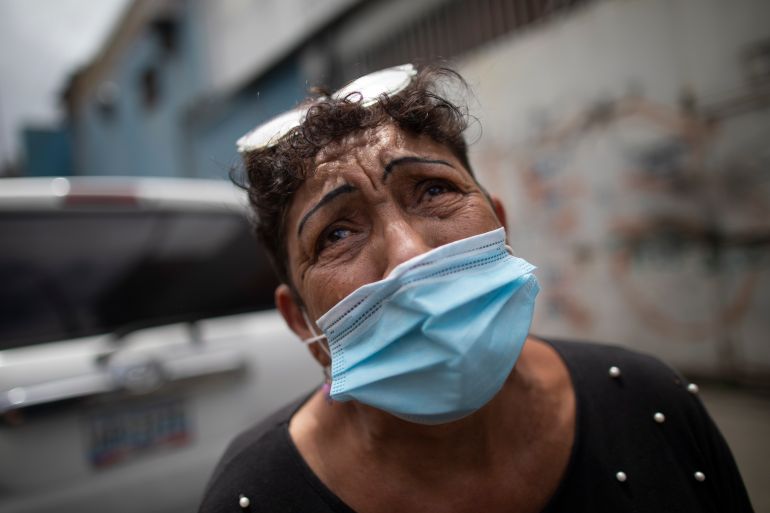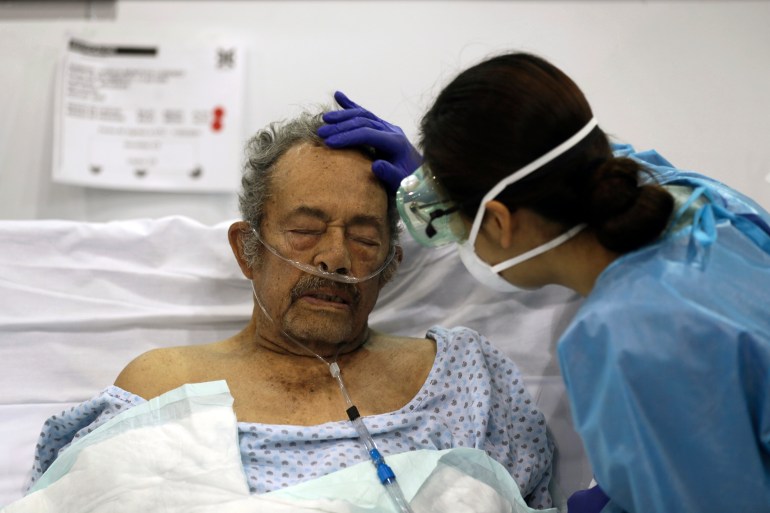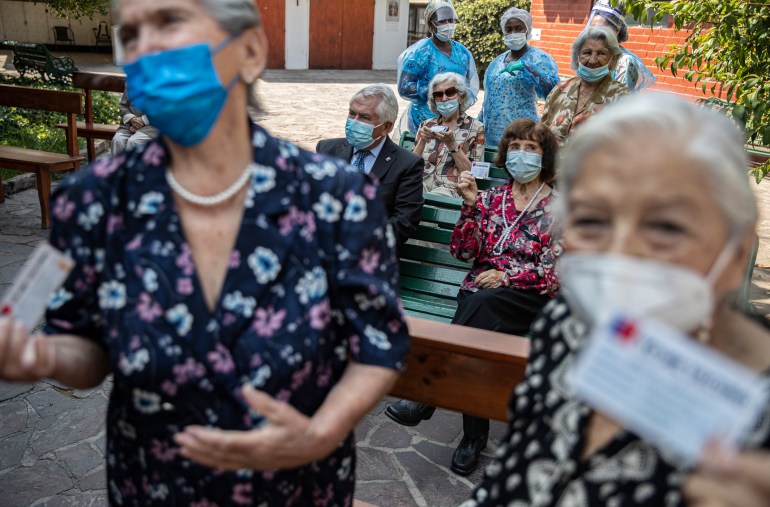Over half of last week’s global COVID deaths in Americas: PAHO
COVID cases are mounting across the Americas with more than 37,000 people dead in the past week.

COVID-19 infections continue to surge throughout the Americas, the director of the Pan American Health Organization (PAHO) said on Wednesday, with more than 1.3 million new cases registered this past week and more than 37,000 thousand deaths.
During PAHO’s weekly news conference, the organisation’s director, Carissa Etienne, said some countries in the region are seeing an increase in cases while others are seeing a decline, but the region as a whole continues to be heavily impacted by the pandemic.
Keep reading
list of 3 itemsPeru reports new COVID deaths record ahead of elections
Colombia to extend coronavirus restrictions as infections rise
“More than half of all global deaths reported over the last week were in the Americas – a sober reminder of the human toll of this pandemic,” Etienne said.
“Over the last week, the United States, Brazil and Argentina were among the 10 countries in the world registering the highest number of new infections worldwide,” she said.

According to Johns Hopkins University, the US and Brazil are the world leaders in coronavirus deaths. More than 556,000 people died from COVID-19 in the US, and in Brazil more than 336,000 have died.
Etienne said South America is the most “worrisome” region in the Americas, where cases have been mounting in nearly every country. In Bolivia and Colombia, she said, cases have doubled in the last week.
She added that so far, more than 210 million COVID-19 vaccines had been administered in 49 countries and territories in the region, and 2.8 million vaccines through the COVAX mechanism to 26 countries.
COVAX is an initiative co-led by Gavi the Vaccine Alliance, with its partners, the World Health Organization (WHO) and Coalition for Epidemic Preparedness Innovations (CEPI) to provide access to coronavirus vaccines equitably across the world. The mechanism’s work is essential for the region’s poorest nations, such as Haiti, Nicaragua, Honduras, Guatemala and El Salvador.
But vaccination rates vary greatly across the region. While Chile leads with more than 37 percent of its population vaccinated, according to Our World in Data, other nations such as Guatemala and Honduras, have vaccinated less than 1 percent of their populations.
The region’s most populated countries such as Brazil and Mexico have also struggled to source vaccines, amid a worldwide demand and limited supplies.
Several nations have relied on vaccines from Russia, China and India.
On Wednesday, Mexican Foreign Minister Marcelo Ebrard said in a tweet that more than 400,000 doses of the Chinese single-dose vaccine CanSino were delivered to Mexico. He said the vaccine was given emergency approval after 15,000 Mexicans took part in trials.

Chile gave emergency approval to the CanSino vaccine on Wednesday, the country’s health ministry announced in a tweet.
The PAHO news conference fell on World Health Day, the annual day to raise awareness on health issues and the importance of equity in access to health care.
Etienne said that the pandemic which began spreading rapidly across the globe more than a year ago, has deepened the inequities that have long dogged the region.
“Effectively fighting COVID-19 is impossible without addressing some of these inequalities and supporting the most vulnerable as they struggle to protect themselves,” she said.
“On World Health Day, we urge countries to make equity the guiding force of their COVID response.”